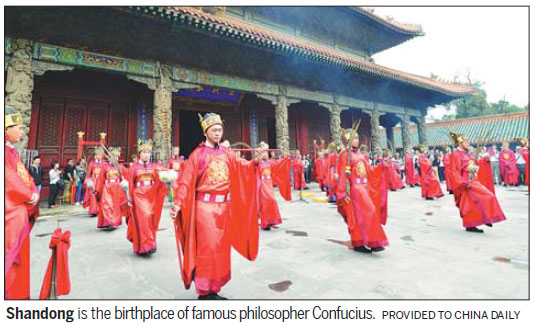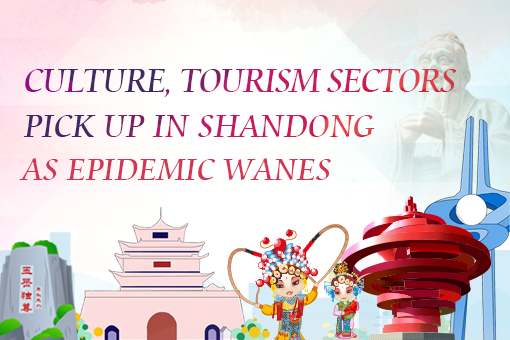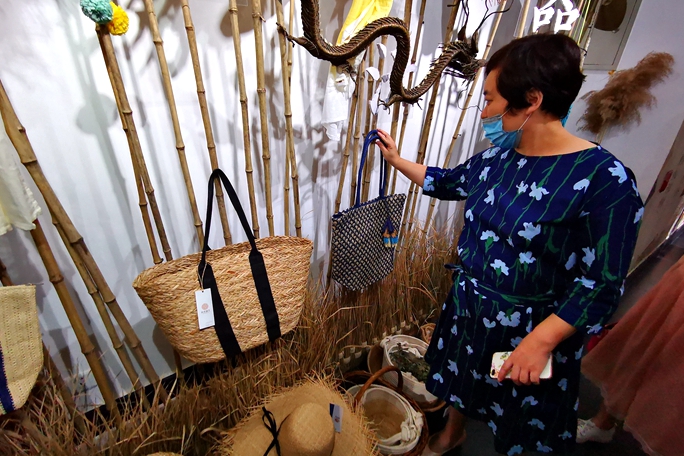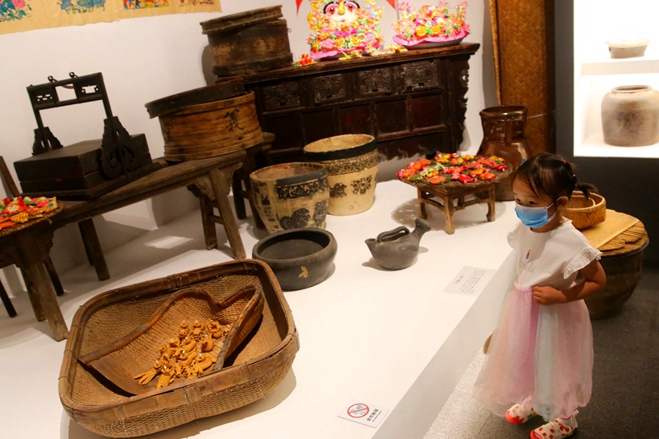Cultural exchanges spur strengthened ties among organization's countries
Blessed with a wealth of history, Shandong has been playing its part in promoting cultural exchanges and strengthening friendships with countries involved with the Shanghai Cooperation Organization.
In 2017, artists from 67 cultural communications teams from Shandong participated in a total of 892 visits to countries and regions all over the world. Among which, 41 teams visited countries involved in the Belt and Road Initiative.
In return, 427 foreign culture exchange teams consisting of thousands of artists visited China last year, according to officials.
Cultural exchanges spur strengthened ties among organization's countries Wang Tingqi, deputy director of the Shandong Provincial Department of Culture, said that the countries and regions along the Belt and Road are blessed with unique features due to their diverse cultures, ethnic religions and beliefs.
"Shandong will seek common ground while marking differences and showing respect to every cultural tradition. For different countries and regions, we will plan different and unique activities," Wang said.
Shandong's efforts are a reflection of the Silk Road Spirit - peace and cooperation, openness and inclusiveness, mutual learning and mutual benefit - and the Shanghai Spirit of mutual trust, equality, consultation, respect for diverse civilizations and the pursuit of common development, Wang added.

Last April, Shandong's Department of Culture released measures to better support the Belt and Road Initiative.
"Shandong will develop high-end communications platforms, activity brands and cooperation facilities to speed up construction of a Belt and Road cultural cooperation and communications center," Wang said.
Shandong will sign more cultural cooperation agreements, annual implementation plans and memorandums of understanding with countries and regions involved in the Belt and Road Initiative, to build cultural cooperation mechanisms and to promote communication between governments and non-government bodies, Wang revealed.
A range of Confucianism-related activities, such as the annual International Confucius Cultural Festival, World Confucian Conference and Nishan Forum, have been staged and have become high-end platforms to communicate with countries and regions along the Belt and Road. Nishan in Qufu, Shandong province, is the birthplace of Confucius.
In addition to the commitment, Shandong has launched a project to build a cultural exchange system that can integrate cultural resources in different regions in the province under one roof, to enhance its capabilities in cultural exchange.
Wen Shanchang, an official in charge of foreign affairs at the Shandong's Department of Culture, said: "Shandong has become one of the most active provinces in China in promoting cultural exchanges through various activities in countries and regions along the Belt and Road.
"The culture, art and history of Shandong have been promoted in countries such as Australia, Singapore, South Korea, Sweden, Thailand, Lithuania, Japan, Serbia and South Africa."
In August 2017, the Belt and Road Book Fair in Shandong attracted 96 overseas publishing houses from 35 countries, 51 domestic publishing houses and four copyright agencies.
In September last year, the province staged Shandong Week at the China Pavilion of Expo 2017 Astana, Kazakhstan.
Audiences had the chance to appreciate Shandong's traditional art performances and intangible cultural heritage, such as Weifang kite flying, wood engraving and Caozhou flour sculpture.
The 31st Nishan Book House was established in Dubai, United Arab Emirates, last April. Operated by Shandong Publishing Group, the mini libraries have provided over 10,000 Shandong-produced books in countries such as Malta, Russia and Poland.
The Shandong authorities are also keen to introduce more of the culture of SCO countries to local residents.
Russia's top performance troupes regularly appear in shows at Shandong Grand Theatre in Jinan, capital of Shandong province.
(China Daily 06/09/2018 page6)

 Shandong Culture and Tourism Consumption Season
Shandong Culture and Tourism Consumption Season Culture, tourism sectors pick up in Shandong as epidemic wanes
Culture, tourism sectors pick up in Shandong as epidemic wanes

